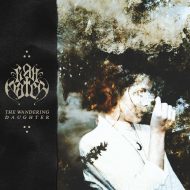 I always finding it disconcerting when an album starts with three minutes of acoustic progressive ambience – quite sophisticated actually – and immediately changes tack and goes into death metal vibes. I won’t hold this against Piah Mater specifically, whose second album this is, as many bands warm up this way.
I always finding it disconcerting when an album starts with three minutes of acoustic progressive ambience – quite sophisticated actually – and immediately changes tack and goes into death metal vibes. I won’t hold this against Piah Mater specifically, whose second album this is, as many bands warm up this way.
In fact Piah Mater clearly have a series of thoughts, which result in a prog rock-metal operatic framework. “Solace in Oblivion” follows the opening ambiance, but after seeming to pay homage to Opeth at their heaviest, revert to softness and then a progressively orientated metal of heavy and melodic proportions. It’s a bold statement, and in spite of all the apparent contradictions, it’s engaging and works. Prog extravagance is there, but this doesn’t stand still. Soon we’re off into another Opethian passage, but this time it’s of the “Damnation” acoustic variety. I was beginning to understand the initial description I had of this Brazilian band’s music, which was “a cauldron of gut-wrenching Death Metal and atmospheric Black Metal seen through the kaleidoscope lens of Progressive Rock”. I appreciated the technical accomplishment and there is a flow, but I did think there was an element of “throw everything at it and it will stick”.
After the meaty and substantial “Solace in Oblivion”, “Strung from Weakness” starts fast and hard and growly. It breaks down into echoey melancholy but only for a second or two. Crunchy melodic death metal dominates the scene, with interruptions for presumably meaningful prog style vocal emotional extravagance. I’m not sure where it all led us, to be honest. We return to the acoustic atmosphere – a real strength in my book, so colourful and deep is it – but the vocals, which I guess are deliberately distant a la Akerfeldt, are weak. That is my opinion, and it may be that other progressive music followers may find inner meaning and depth in them and the words. I cannot fault the instrumentals, although the switching of sections does pass me by without knowledge of what space we’re in. The growls work fine, and the atmosphere has heightened pomp. More Opeth like deathly technicality follows in “Earthbound Ruins”, punctuated as ever with the lightweight prog chorus. It works better when in the setting of lush instrumental work, but whilst I appreciated that the dramatic shifts in style are meant to signify moments of great import, I always felt I was being left behind or someone hadn’t told me something. In fact as I listened to the vigorous “The Meek’s Inheritance”, I hoped in my mind that it would retain its fortitude and not deviate into philosophical or other territory. Piah Mater’s rhythm lines have real power and strength, and get the juices flowing with epic pomp and majesty. Here we have a flamboyant jazz style guitar section – much better expression than those vocals – and the strength is retained without losing the creative transformative juices that this band likes so much. In managing to retain the power throughout its fifteen minute duration, “The Meek’s Inheritance” proved to be for me the highlight of this varied work.
I found “The Wandering Daughter” a difficult album to grasp. In style, it has a strong affinity to earlier Opeth, and I’m fine with that. I had more difficulty with the changes of direction and in particular the juxtaposition of progressive death metal and airy prog choruses. It’s interesting but in my opinion at least, unsatisfying as a whole.
(6.5/10 Andrew Doherty)

Leave a Reply